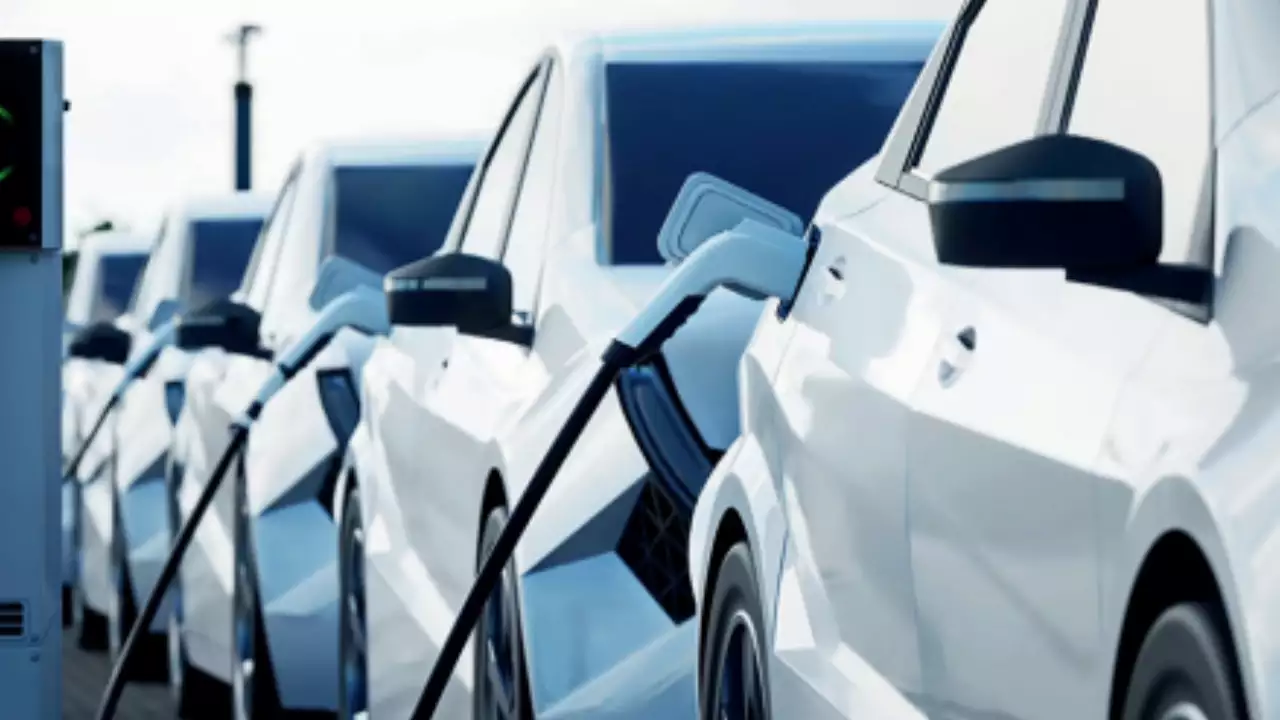 The FAME-II Scheme, launched in 2019 with an outlay of INR 11,500 crore, aims to promote electric mobility in India through demand incentives for e-2Ws, e-3Ws, e-4Ws, e-buses, and EV public charging stations.
The FAME-II Scheme, launched in 2019 with an outlay of INR 11,500 crore, aims to promote electric mobility in India through demand incentives for e-2Ws, e-3Ws, e-4Ws, e-buses, and EV public charging stations.New Delhi: The production-linked incentive (PLI) scheme for automobile and auto components industry has achieved INR 20,715 crore investment and INR 10,472 crore incremental sales have been achieved (as of September), with the first incentive disbursement planned for FY2024-25, the government said on Thursday.
According to the Ministry of Heavy Industries, out of 115 applications received, 82 were approved, with an estimated investment of INR 42,500 crore, incremental sales of INR 2,31,500 crore, and 1.4 lakh jobs over five years.
The PLI scheme for automobile and auto components industry, with a budgetary outlay of INR 25,938 crore, aims to enhance India's manufacturing capabilities for advanced automotive technology (AAT) products, overcome cost disabilities, and build a robust supply chain.
The scheme covers the period FY 2023-24 to FY 2027-28, with incentive disbursements from FY 2024-25 to FY 2028-29. The scheme offers incentives of 13-18 per cent for electric vehicle and hydrogen fuel cell components and 8-13 per cent for other AAT components.
The FAME-II Scheme, launched in 2019 with an outlay of INR 11,500 crore, aims to promote electric mobility in India through demand incentives for e-2Ws, e-3Ws, e-4Ws, e-buses, and EV public charging stations.
As of October 31, 2024, INR 8,844 crore has been spent, including INR 6,577 crore for subsidies, INR 2,244 crore for capital assets, and INR 23 crore for other expenses.
"A total of 16.15 lakh EVs have been incentivized: 14.27 lakh e-2Ws, 1.59 lakh e-3Ws, 22,548 e-4Ws, and 5,131 e-buses. Additionally, 10,985 EV PCS have been sanctioned, with 8,812 allocated for installation," according to the ministry data.
The PM E-DRIVE Scheme, notified on September 29, 2024, with a total outlay of INR 10,900 crore, is being implemented from October 1, 2024, to March 31, 2026, to promote green mobility and develop the EV manufacturing ecosystem.
The allocation includes INR 3,679 crore for subsidies to incentivize 28 lakh e-2Ws, e-3Ws, e-ambulances, and e-trucks; INR 4,391 crore for the procurement of 14,028 e-buses by public transport agencies; INR 2,000 crore for installing 22,100 fast chargers for e-4Ws, 1,800 fast chargers for e-buses, and 48,400 fast chargers for e-2Ws/3Ws; INR 780 crore for upgrading testing agencies; INR 500 crore each for deploying e-ambulances and e-trucks; and INR 50 crore for administrative expenses.
As of November 20, INR 600 crore in claims have been submitted under the scheme, with INR 332 crore disbursed.
The Scheme to Promote Manufacturing of Electric Passenger Cars (SMEC) in India promotes India as a manufacturing hub for electric vehicles (e-4Ws), and boost domestic value addition (DVA).
The scheme allows limited imports of e-4Ws at reduced customs duty, capped at 8,000 vehicles per year, with a total duty foregone per applicant limited to INR 6,484 crore or the committed investment.
The PM e-Bus Sewa - Payment Security Mechanism (PSM) Scheme, notified on October 28, with a total financial outlay of INR 3,435.33 crore, aims to ensure payment security for OEMs/operators in case of default by Public Transport Authorities (PTAs) for e-bus procurement and operations under gross cost contract (GCC) or similar models.
The government also approved a production-linked incentive (PLI) scheme for setting up manufacturing facilities for Advance Chemistry Cell (ACC) battery storage in India, with an outlay of Rs. 18,100 crore for 7 years.
The scheme aims to enhance India's manufacturing capabilities and envisages incentivizing large domestic and international players in establishing a competitive ACC battery set-up in the country.
